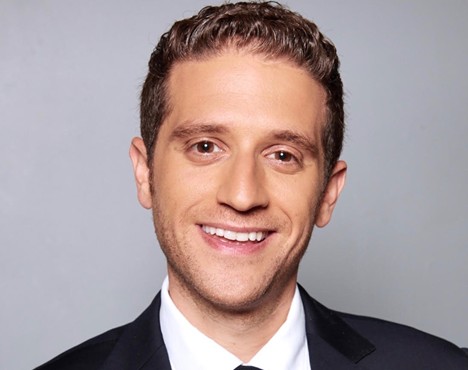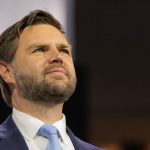When catastrophe struck Israel on October 7th, serial entrepreneur Jordan Fried found himself in London, far from the unfolding crisis. Within 24 hours, he had chartered an Airbus A330 and was organizing what would become a massive humanitarian airlift operation. The decision might seem impulsive for someone with no logistics experience and a pregnant wife at home. But for Fried, it reflected a more profound philosophy that has guided his business ventures and philanthropic efforts: identifying problems and mobilizing resources to solve them, often more efficiently than established institutions.
"I think private sector is always the solution outside of a government," Fried explains, a conviction that runs through his approach to business and charity.
This entrepreneurial approach to problem-solving wasn't learned in business school—Fried has no college degree. Instead, it was instilled from childhood by parents who modeled the entrepreneurial mindset daily, creating a foundation that shaped his worldview long before he achieved financial success.
Family Foundations
While many successful entrepreneurs come from backgrounds with traditional professional parents—doctors, lawyers, teachers—Fried's upbringing was markedly different. Both his parents were entrepreneurs, normalizing the risk-taking mindset that many find daunting.
"I had the really great fortune of having both parents that were extremely entrepreneurial," Fried reflects. "When in my mind, there was nothing scary about it because it was literally what mom and dad were doing on a day-to-day basis."
His father launched several businesses before succeeding with one that supported their extensive family. Meanwhile, his mother founded one of America's largest nonprofit adoption agencies. Together, they raised a diverse household of ten children—four biological and six adopted, including two African American brothers and three sisters with Down Syndrome.
This environment normalized not just entrepreneurship but also social responsibility. "So much of who I am came from my parents," Fried acknowledges, describing a childhood where solving problems and helping others were seamlessly integrated.
The family's approach might be summarized as: identify a need, create a solution, and measure success by positive impact rather than profit alone—a framework that would later define Fried's adult ventures in both the business and philanthropic realms.
Entrepreneurial Solutions to Social Problems
When Fried moved to Puerto Rico in 2020, he quickly recognized that the island—still recovering from Hurricane Maria's devastation in 2017—faced significant challenges in attracting tourists and investment. Rather than viewing these as intractable problems, he saw entrepreneurial opportunities.
After purchasing the domain puertorico.com for $1.1 million, Fried transformed it into a comprehensive tourism resource that now rivals the official government tourism board's site in traffic—despite operating on a fraction of the budget.
"The tourism board here spends over 35 million a year on a domain name called discoverpuertorico.com. But we have come close to surpassing them in both traffic and eyeballs for quite literally a few hundred thousand dollars a year in budget," Fried notes.
These initiatives reflect his belief that entrepreneurs often solve problems more efficiently than governments or traditional institutions—an approach that would later guide his philanthropic response to crisis in Israel.
From Private to Public Philanthropy
Despite his success with highly visible business ventures, Fried's approach to charity remained intensely private until recently. "I was raised in a way that you don't talk about what you're giving, you do it very privately, and the best form of giving is when your name's not attached to it," he explains, attributing this philosophy to his Jewish upbringing.
The October 7th attacks on Israel changed this approach. When a friend called seeking help returning to Israel amid canceled commercial flights, Fried saw an opportunity to make a tangible difference.
Setting up operations from a Beverly Hills hotel, he orchestrated a series of humanitarian flights that would eventually transport thousands of people back to Israel and deliver 17 tons of essential supplies. The effort gained national attention, appearing on CNN, Fox News, and Anderson Cooper's program.
For Fried, the mission was deeply personal, connected to his family heritage through his grandfather, who had survived the Holocaust, moved to Israel, and fought in the 1948 War of Independence.
"Who am I if I don't do it now?" Fried reflects on his decision to act. "I knew my sons would ask me one day, 'Dad, what did you do on October 7th when war broke out?' And I wanted to be able to say, I did something."
The initiative evolved into an organization called Israel Friends, eventually channeling over $35 million in aid to affected communities. Despite the public nature of this effort, Fried's motivation remained consistent with his earlier, more private charitable work: identifying a problem and mobilizing resources to address it efficiently.
The Giving Philosophy
Throughout his various ventures, a consistent philosophy emerges: wealth is valuable primarily as a tool for creating positive impact. "Making money is not fulfilling. Helping people is where the fulfillment truly comes from," he asserts.
This perspective also shapes his long-term financial planning. "The Giving Pledge is beautiful. Any amount of money I make in this lifetime, I plan on giving most of it away," Fried states, referencing the commitment by some billionaires to donate the majority of their wealth.
For Fried, this approach isn't about publicity or recognition—it's about legacy. "There's very few things in life that are immutable," he reflects, using a term that suggests permanence in a temporary world. "I think the measure of our lives... is what we do at the time in between."
This sense of limited time drives his multifaceted approach to both business and philanthropy. "I could die at any point in time and I just want to do as much as I can before that point comes and leave this place better than I found it," he explains.
Building Legacy Through Problem-Solving
Whether developing tourism resources through strategic domain investment or chartering humanitarian flights to Israel, Fried consistently approaches problems with an entrepreneur's mindset: identifying gaps, mobilizing resources efficiently, and measuring success through tangible impact.
This approach contrasts traditional distinctions between for-profit business and nonprofit charity. For Fried, the common thread is problem-solving rather than a profit motive.
"Can I do something that's both good for Puerto Rico but also generate a profit at the same time? Can I promote the island, do the island a service, while also generating a profit? That would be a really great win-win," he reflects.
This integrated view of entrepreneurship and philanthropy represents Fried's distinctive approach to legacy-building. Rather than compartmentalizing business ventures as profit-driven and charitable efforts as separate good deeds, he sees both as vehicles for solving problems and creating positive impact.
In a world often divided between market-based and charitable solutions to social problems, Fried's approach suggests a middle path: harnessing entrepreneurial efficiency and innovation to address social needs, while measuring success not just in financial returns but in improved lives and communities.
As he continues building businesses and supporting causes from Puerto Rico to Israel, this integrated approach to entrepreneurship and philanthropy defines Fried's evolving legacy—one focused not on personal wealth accumulation but on leaving the communities he touches "better than he found them."









